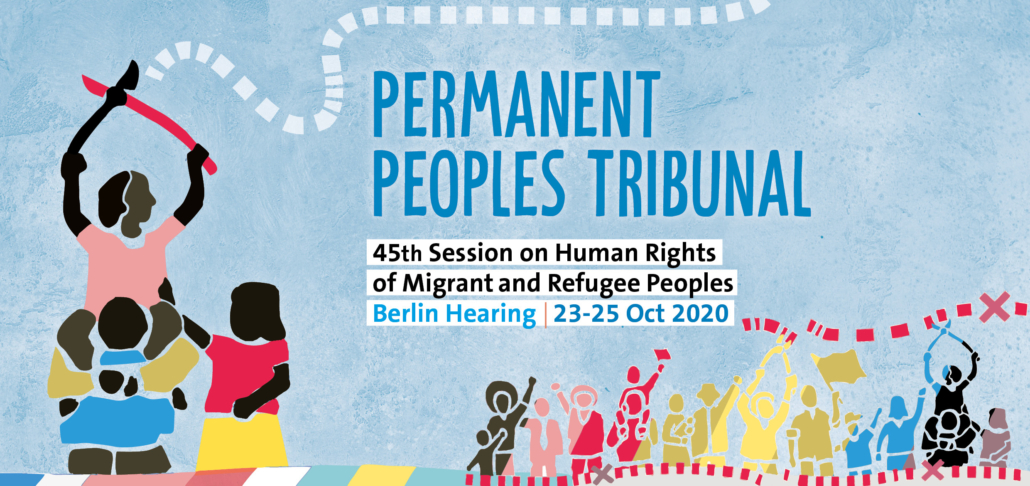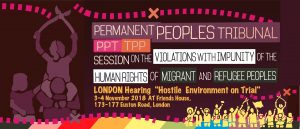The PPT Judgment on The Human Right to Health of Migrant and Refugee Peoples (Berlin, 23-25 October 2020)
The Permanent Peoples’ Tribunal’s Judgment on The Human Right to Health of Migrant and Refugee Peoples (Berlin, 23-25 October 2020) 45° Session on the Violations of the Human Rights of Migrant and Refugee Peoples The Judgment and the Recommendations formulated by the Permanent Peoples Tribunal (PPT) on The Human Right to Health of Migrant and […]


